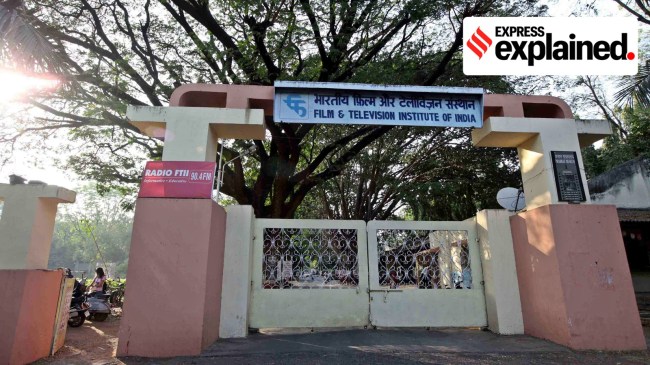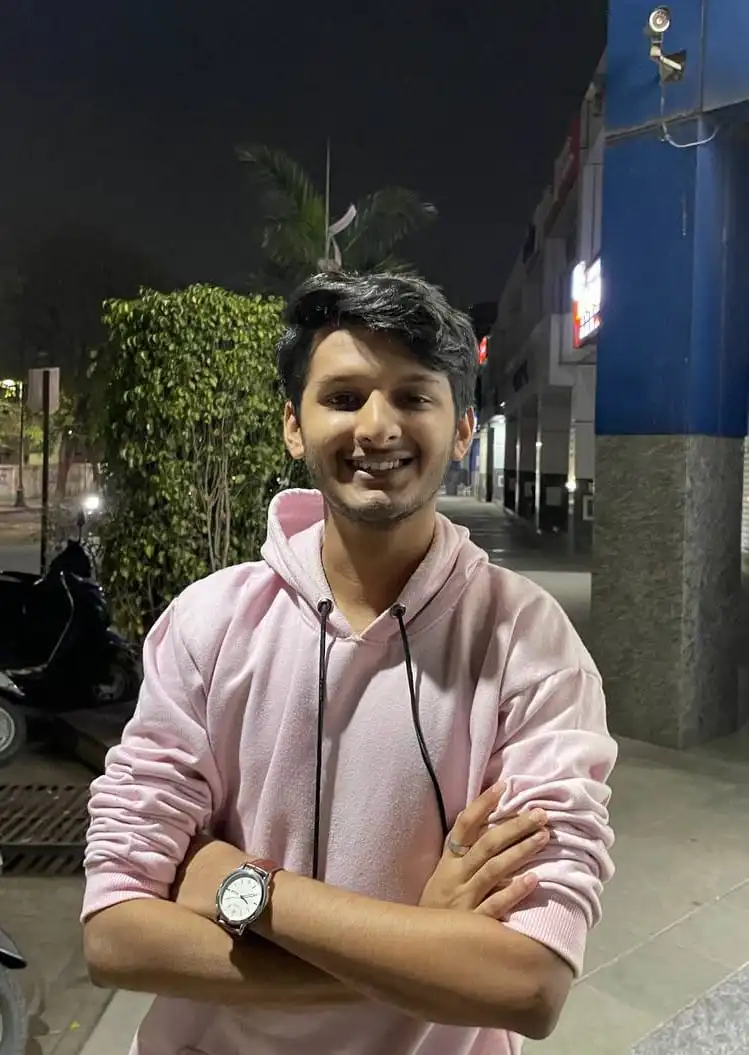Opinion FTII Pune is now a ‘deemed university’. What does this mean for India’s premier film and TV school?
Deemed universities have a lot of the status and powers of universities that mere institutes do not. To be eligible to apply for this status, an institute must essentially have a recent proven and measurable track record of excellence. Here’s what else will change for FTII.
 Main gate of the Film and Television Institute of India (FTII) in Pune. (Express photo by Arul Horizon)
Main gate of the Film and Television Institute of India (FTII) in Pune. (Express photo by Arul Horizon) The Union Ministry of Education has notified the Film and Television Institute of India (FTII) in Pune as an “Institution Deemed to be University”.
 FTII has long been among the most sought-after destinations for the study of the practical aspects of filmmaking, and has produced towering alumni from Naseeruddin Shah, Shabana Azmi, and Adoor Gopalakrishnan to Rajkummar Rao and Jaideep Ahlawat.
FTII has long been among the most sought-after destinations for the study of the practical aspects of filmmaking, and has produced towering alumni from Naseeruddin Shah, Shabana Azmi, and Adoor Gopalakrishnan to Rajkummar Rao and Jaideep Ahlawat.What does it mean for FTII to receive the status of a “deemed to be university”?
FTII: the institute
FTII was set up by the Government of India in 1960 in Pune on the premises of the erstwhile Prabhat Studios, a pioneering company that had moved to the city from Kolhapur back in 1933. According to the FTII website, the institute was established as a department of the Ministry of Information and Broadcasting, and was then known as the Film Institute of India.
‘Television’ was added to the name of the institute in 1971, and FTII soon started in-service training programs for Doordarshan. The public broadcaster’s television training wing moved to Pune from Delhi in 1974. Along with its name, the status of FTII was changed to an autonomous society under the I&B Ministry, run by a governing council and a director appointed by it.
The FTII campus has seen unrest and repeated controversy in recent decades.
The institute had a chronic problem of backlog of courses, which meant standard three-year courses sometimes stretched for years longer, and there were many more students present on campus than was mandated, leading to overcrowding in classes and hostels.
In 2015, students went on a months-long strike to protest the appointment of small-time television actor Gajendra Chauhan as president of the FTII Society, which segued into broader questions of creative freedoms and alleged thought control on campus.
 FTII students stage a demonstration during the visit of Anurag Thakur, then Union Minister for Information & Broadcasting and Youth Affairs & Sports, in 2022. (Express archives)
FTII students stage a demonstration during the visit of Anurag Thakur, then Union Minister for Information & Broadcasting and Youth Affairs & Sports, in 2022. (Express archives)
These concerns have persisted, and have flared up from time to time, including last year, when alleged Hindutva activists entered the campus and protested violently against a banner about the razing of the Babri Masjid in Ayodhya.
Deemed university
According to the Education Ministry, an institution of higher education that is not (yet) a university but works at a very high standard in a specific area of study, can be declared as an institution “deemed-to-be-university”.
The designation is made by the central government on the advice of the higher education regulator, the University Grants Commission (UGC).
A deemed university enjoys the academic status and privileges of a university, even though it isn’t one. Its objectives include providing higher education leading to excellence in various branches of knowledge from the undergraduate to the research degree levels, while fully conforming to the concept of a university.
This, according to the government, helps strengthen the research ecosystem and contribute to social transformation through socially responsive teaching, learning, research, and fieldwork.
A deemed university can also start new courses or programmes in any field on their existing campus and off-campus centres with the approval of the Executive Council and, if required, the relevant statutory council.
Eligibility for deemed university status
To be eligible to apply, an institute must essentially have a recent proven and measurable track record of excellence.
An institute must have either a National Assessment and Accreditation Council (NAAC) ‘A’ grade with at least a 3.01 CGPA for three consecutive cycles or a National Board of Accreditation (NBA) accreditation for two-thirds of eligible programmes for three consecutive cycles.
Being in the top 50 of any category of National Institutional Ranking Framework (NIRF) for the last three years continuously, or in the top 100 of the overall NIRF ranking for the last three years continuously would also make the institute eligible to apply for deemed university status.
The FTII website today advertises itself as a recognised “centre for excellence in audio visual media across the world and one of the best film institutes in India”, whose alumni “work everywhere from Los Angeles, Paris and London to Mumbai, Hyderabad, Trivandrum, Chennai and Kolkata”, and have “gained popularity and earned various laurels as accomplished technicians and superstars”.
Eleven full-time courses in various disciplines of film and television are taught at the institute, the website says. These courses include Direction and Screenplay Writing, Cinematography, Sound Recording and Sound Design, and Screen Acting in the Film Wing, and Electronic Cinematography and Video Editing in the TV Wing.
What changes for FTII
Institute Director Dhiraj Singh said, “This recognition under the distinct category allows FTII to retain its unique identity while embracing the benefits of being a world-class university. Award of degrees and research are immediate benefits while it paves way for better innovation and integration with the academics as NEP umbrella provides a lot of flexibility and scope.”
FTII currently offers Post Graduate Diploma Courses that are granted Master’s degree equivalence by Association of Indian Universities (AIU) and Post Graduate Certificate Courses approved by All India Council for Technical Education (AICTE).
Registrar Prateek Jain said the number and details of degree courses would be announced soon. “Students selected after the announcement are likely to be enrolled for degree courses as per the courses that will be announced in the upcoming prospectus,” he said.






